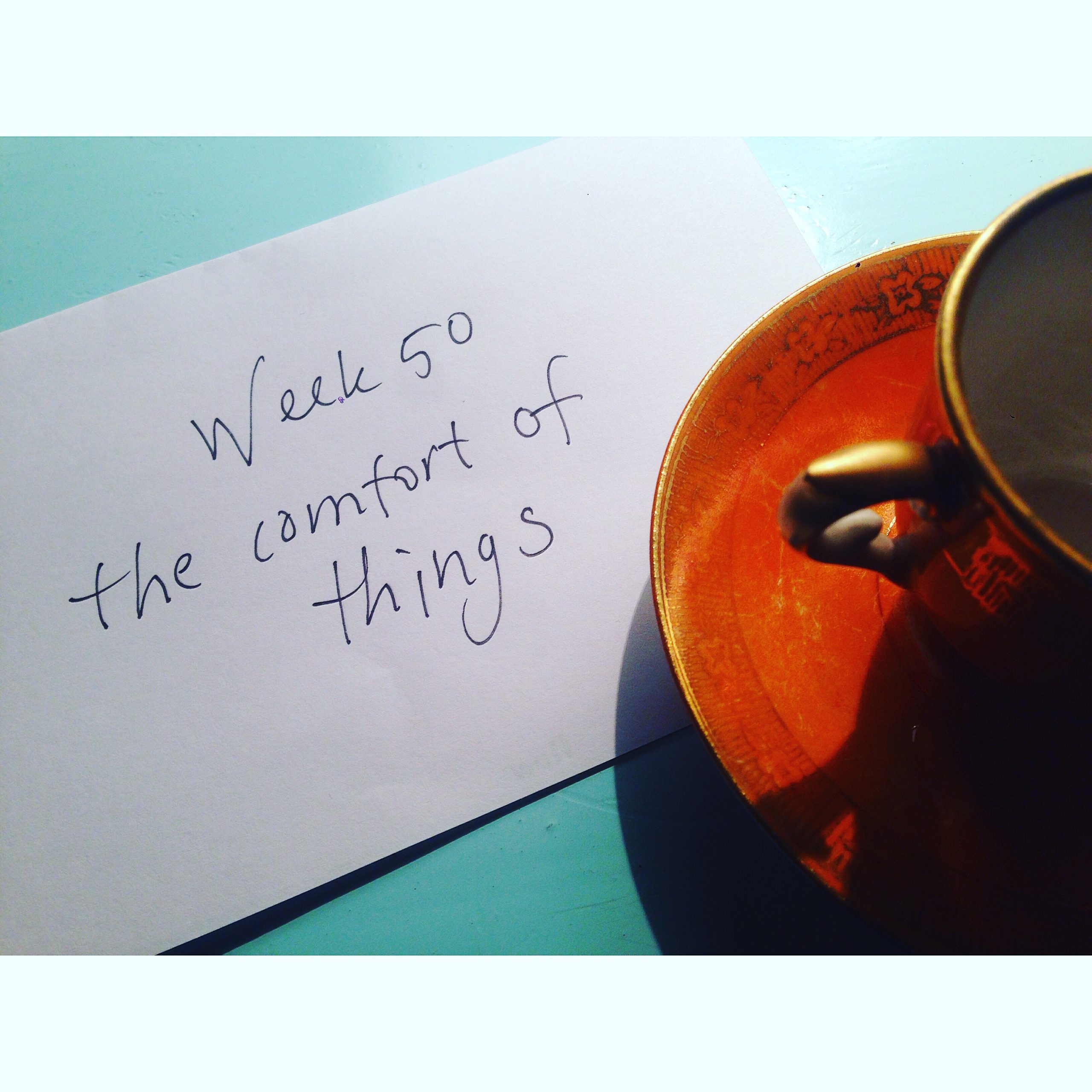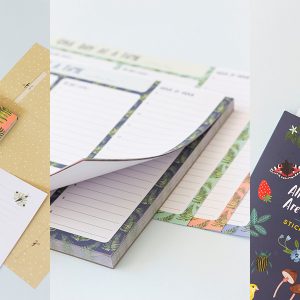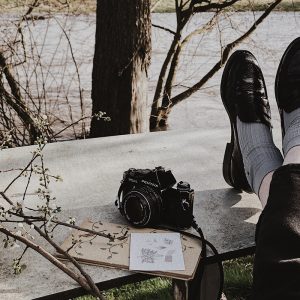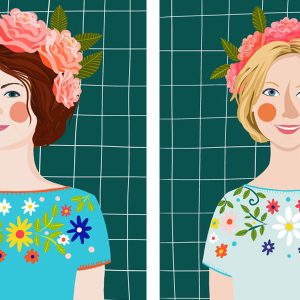The comfort of things
As a blogger about decluttering, it’s only natural that my eye falls on anything related to the topic. Tiny house-books, tidying-up coaches: you name it, I see it. It seems that the whole world is currently busy with decluttering, so my eye often has something to fall upon. Since I am a declutterer that also plays truant, however, I also try not to notice things at times. Sometimes you simply have an ‘off week’. And during one of those, I saw a wonderfully soothing story in the British magazine The Simple Things, which was called ‘The Comfort of Things’—a title that is music to my ears on this autumnal day, when all I want to do is hang out on the couch with a warm blanket in the midst of all my stuff. I don’t want to declutter; I want to be in the company of ten candlesticks, with new slippers on my feet, munching away on artisan chocolate and binge-watching Netflix.
The article was about, among other things, an old book of the same reassuring title, The Comfort of Things by anthropologist Daniel Miller, who wrote about what things mean to people. In it, he describes the interiors of 30 houses in a London street. It’s lovely to see, alongside psychologists, philosophers and coaches, the role anthropology itself plays in the whole decluttering issue. Daniel Miller writes, “[This is a book about] how people express themselves through their possessions, and what these tell us about our lives. It explores the role of objects in our relationships, both to each other and to ourselves. We live today in a world of ever more stuff – what sometimes seems a deluge of goods and shopping. We tend to assume that this has two results: that we are more superficial, and that we are more materialistic, our relationships to things coming at the expense of our relationships to people. […] By the time you finish this book, you will discover that, in many ways, the opposite is true; that possessions often remain profound and usually the closer our relationships are with objects, the closer our relationships are with people.”
In the world of clutter and decluttering, it’s currently a case of seeing which way the wind blows; how you manage to twist and turn everything to make whatever is being said true and relevant to you. But the following explanation in Miller’s book is something I’ll never forget. Anthropologists say that people have been conditioned to notice new and unusual things. It’s how we integrate with each other; it’s part of our survival strategy. So when my attention is aroused by fun new satellite speakers for streaming music, then it’s not the Miss Greedy in me, but the Miss Cavewoman in me. There’s nothing I can do about it; Wilma Flintstone was stronger than me. Daniel Miller says you shouldn’t feel so guilty about it, it’s the way things work. It just shows how creative our minds are. We can handle new things.
I can also handle new things, like no other. I reckon it would be wonderful to be married to Daniel, who would dance a merry anthropological dance each time I introduced a new bag into the house. Jonathan Chapman, a professor at the University of Brighton in the UK, also has this to say regarding our primal instincts about things. “It’s important to remember that wanting things is not a fault, but something in our blood.” If I owned a ‘stuff store’, I would immediately have this quote hand-lettered and hang it up above the cash register. But for now, it seems safer to crawl under the covers like a real caveman, to weather the storm of this stuff-truant-week, and reach the shore safely when it’s over.
Astrid, together with Irene, is the founder of Flow Magazine. She lives with her partner and two children. Each Tuesday, she writes about the sense—and nonsense—of decluttering.













